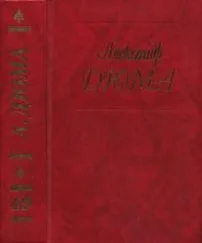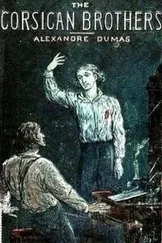Александр Дюма - The Conspirators
Здесь есть возможность читать онлайн «Александр Дюма - The Conspirators» весь текст электронной книги совершенно бесплатно (целиком полную версию без сокращений). В некоторых случаях можно слушать аудио, скачать через торрент в формате fb2 и присутствует краткое содержание. Год выпуска: 2014, Издательство: epubBooks Classics, Жанр: Историческая проза, на английском языке. Описание произведения, (предисловие) а так же отзывы посетителей доступны на портале библиотеки ЛибКат.
- Название:The Conspirators
- Автор:
- Издательство:epubBooks Classics
- Жанр:
- Год:2014
- ISBN:нет данных
- Рейтинг книги:3 / 5. Голосов: 1
-
Избранное:Добавить в избранное
- Отзывы:
-
Ваша оценка:
- 60
- 1
- 2
- 3
- 4
- 5
The Conspirators: краткое содержание, описание и аннотация
Предлагаем к чтению аннотацию, описание, краткое содержание или предисловие (зависит от того, что написал сам автор книги «The Conspirators»). Если вы не нашли необходимую информацию о книге — напишите в комментариях, мы постараемся отыскать её.
The Conspirators — читать онлайн бесплатно полную книгу (весь текст) целиком
Ниже представлен текст книги, разбитый по страницам. Система сохранения места последней прочитанной страницы, позволяет с удобством читать онлайн бесплатно книгу «The Conspirators», без необходимости каждый раз заново искать на чём Вы остановились. Поставьте закладку, и сможете в любой момент перейти на страницу, на которой закончили чтение.
Интервал:
Закладка:
"Patience, patience," said Brigaud; "if there had been an opportunity to–day you would not have been able to profit by it."
"No; you are right."
"Then you see that what God does is well done. He has left us this day; let us profit by it to move."
This was neither a long nor difficult business. D'Harmental took his treasure, some books, and the packet which contained his wardrobe, and drove to the abbe's house. Then he sent away his carriage, saying he should go into the country in the evening, and would be away ten or twelve days. Then, having changed his elegant clothes for those that the abbe had brought him, he went to take possession of his new lodging. It was a room, or rather an attic, with a closet, on the fourth story, at No. 5, Rue du Temps Perdu. The proprietor of the house was an acquaintance of the Abbe Brigaud's; therefore, thanks to his recommendation, they had gone to some expense for the young provincial. He found beautifully white curtains, very fine linen, and a well–furnished library; so he saw at once that, if not so well off as in his own apartments, he should be tolerably comfortable.
Madame Denis (this was the name of the abbe's friend) was waiting to do the honors of the room to her future lodger. She boasted to him of its convenience, and promised him that there would be no noise to disturb him from his work. To all which he replied in such a modest manner, that on going down to the first floor, where she lived, Madame Denis particularly recommended him to the care of the porter and his wife. This young man, though in appearance he could certainly compete with the proudest seigneurs of the court, seemed to her far from having the bold and free manners which the young men of the time affected. 'Tis true that the Abbe Brigaud, in the name of his pupil's family, had paid her a quarter in advance.
A minute after, the abbe went down to Madame Denis's room and completed her good opinion of his young protege by telling her that he received absolutely nobody but himself and an old friend of his father's. The latter, in spite of brusk manners, which he had acquired in the field, was a highly respectable gentleman.
D'Harmental used this precaution for fear the apparition of the captain might frighten Madame Denis if she happened to meet him. When he was alone, the chevalier, who had already taken the inventory of his own room, resolved to take that of the neighborhood. He was soon able to convince himself of the truth of what Madame Denis had said about the quietness of the street, for it was not more than ten or twelve feet wide; but this was to him a recommendation, for he calculated that if pursued he might, by means of a plank passed from one window to that opposite, escape to the other side of the street. It was, therefore, important to establish amicable relations with his opposite neighbors.
Unfortunately, they did not seem much disposed to sociability; for not only were the windows hermetically sealed, as the time of year demanded, but the curtains behind them were so closely drawn, that there was not the smallest opening through which he could look. More favored than that of Madame Denis, the house opposite had a fifth story, or rather a terrace. An attic room just above the window so carefully closed, opened on this terrace. It was probably the residence of a gardener, for he had succeeded, by means of patience and labor, in transforming this terrace into a garden, containing, in some twelve feet square, a fountain, a grotto, and an arbor.
It is true that the fountain only played by means of a superior reservoir, which was fed in winter by the rain, and in summer by what he himself poured into it. It is true that the grotto, ornamented with shell work, and surrounded by a wooden fortress, appeared fit only to shelter an individual of the canine race. It is true that the arbor, entirely stripped of its leaves, appeared for the time fit only for an immense poultry cage. As there was nothing to be seen but a monotonous series of roofs and chimneys, D'Harmental closed his window, sat down in an armchair, put his feet on the hobs, took up a volume by the Abbe Chaulieu, and began to read the verses addressed to Mademoiselle de Launay, which had a double interest for him, since he knew the heroine.
The result of this reading was that the chevalier, while smiling at the octogenarian love of the good abbe, discovered that he, less fortunate, had his heart perfectly unoccupied. For a short time he had thought he had loved Madame d'Averne, and had been loved by her; but on her part this deep affection did not withstand the offer of some jewels from the regent, and the vanity of pleasing him.
Before this infidelity had occurred, the chevalier thought that it would have driven him to despair. It had occurred, and he had fought, because at that time men fought about everything which arose, probably from dueling being so strictly forbidden. Then he began to perceive how small a place this love had held in his heart. A real despair would not have allowed him to seek amusement at the bal–masque, in which case the exciting events of the last few days would not have happened.
The result of this was, that the chevalier remained convinced that he was incapable of a deep love, and that he was only destined for those charming wickednesses so much in vogue. He got up, and began to walk up and down his room; while thus employed he perceived that the window opposite was now wide open. He stopped mechanically, drew back his curtain, and began to investigate the room thus exposed.
It was to all appearance occupied by a woman. Near the window, on which a charming little Italian greyhound rested her delicate paws, was an embroidery frame. Opposite the window was an open harpsichord between two music stands, some crayon drawings, framed in black wood with a gold bead, were hung on the walls, which were covered with a Persian paper. Curtains of Indian chintz, of the same pattern as the paper, hung behind the muslin curtains. Through a second window, half open, he could see the curtains of a recess which probably contained a bed. The rest of the furniture was perfectly simple, but almost elegant, which was due evidently, not to the fortune, but to the taste of the modest inhabitant.
An old woman was sweeping, dusting, and arranging the room, profiting by the absence of its mistress to do this household work, for there was no one else to be seen in the room, and yet it was clear it was not she who inhabited it. All at once the head of the greyhound—whose great eyes had been wandering till then, with the aristocratic indifference characteristic of that animal—became animated. She leaned her head over into the street; then, with a miraculous lightness and address, jumped on to the window–sill, pricking up her long–ears, and raising one of her paws. The chevalier understood by these signs that the tenant of the little room was approaching. He opened his window directly; unfortunately it was already too late, the street was solitary.
At the same moment the greyhound leaped from the window into the room and ran to the door. D'Harmental concluded that the young lady was mounting the stairs. In order to see her at his ease, he threw himself back and hid behind the curtain, but the old woman came to the window and closed it. The chevalier did not expect this denouement. There was nothing for him but to close his window also, and to come back and put his feet on the hobs. This was not amusing, and the chevalier began to feel how solitary he should be in this retreat. He remembered that formerly he also used to play and draw, and he thought that if he had the smallest spinet and some chalks, he could bear it with patience.
He rang for the porter, and asked where he could procure these things. The porter replied that every increase of furniture must be at his own expense. That if he wished for a harpsichord he must hire it, and that as to pencils, he could get them at the shop at the corner of the Rue de Clery.
Читать дальшеИнтервал:
Закладка:
Похожие книги на «The Conspirators»
Представляем Вашему вниманию похожие книги на «The Conspirators» списком для выбора. Мы отобрали схожую по названию и смыслу литературу в надежде предоставить читателям больше вариантов отыскать новые, интересные, ещё непрочитанные произведения.
Обсуждение, отзывы о книге «The Conspirators» и просто собственные мнения читателей. Оставьте ваши комментарии, напишите, что Вы думаете о произведении, его смысле или главных героях. Укажите что конкретно понравилось, а что нет, и почему Вы так считаете.












